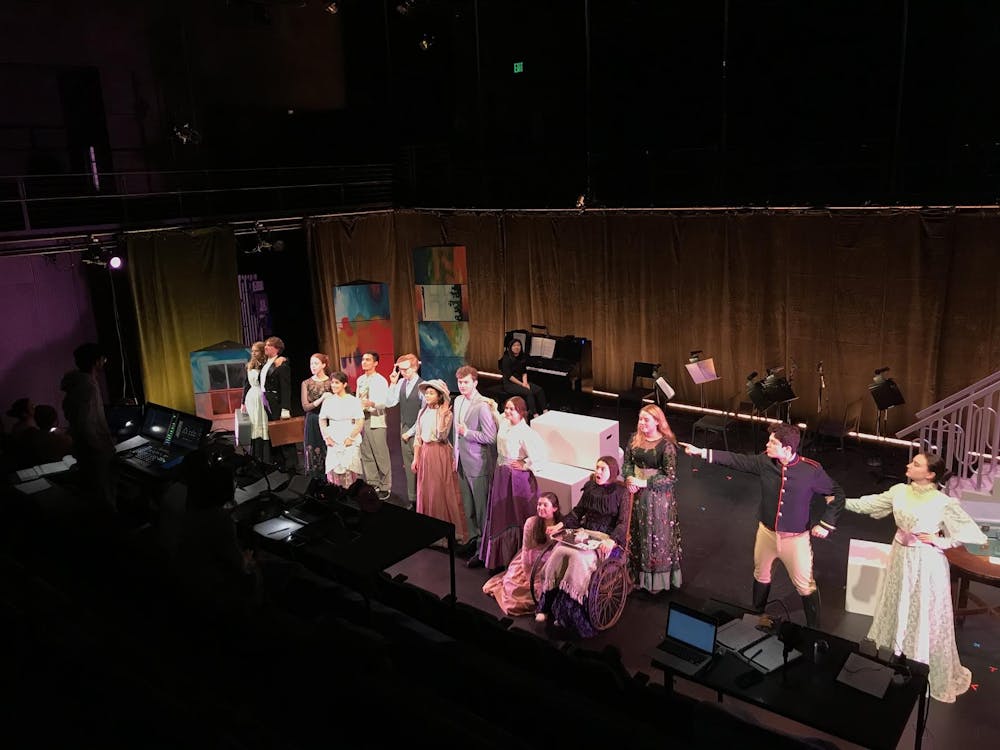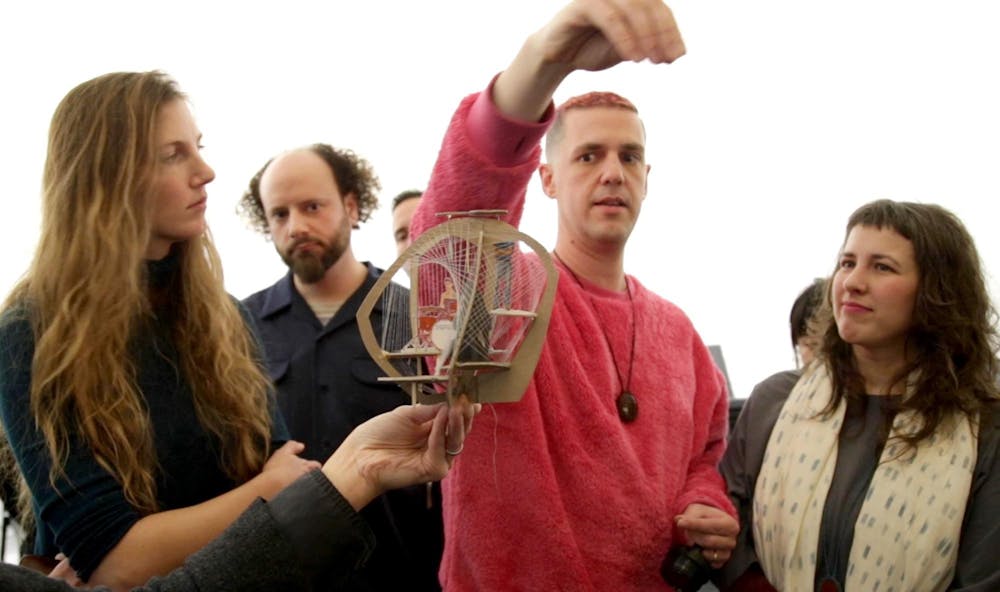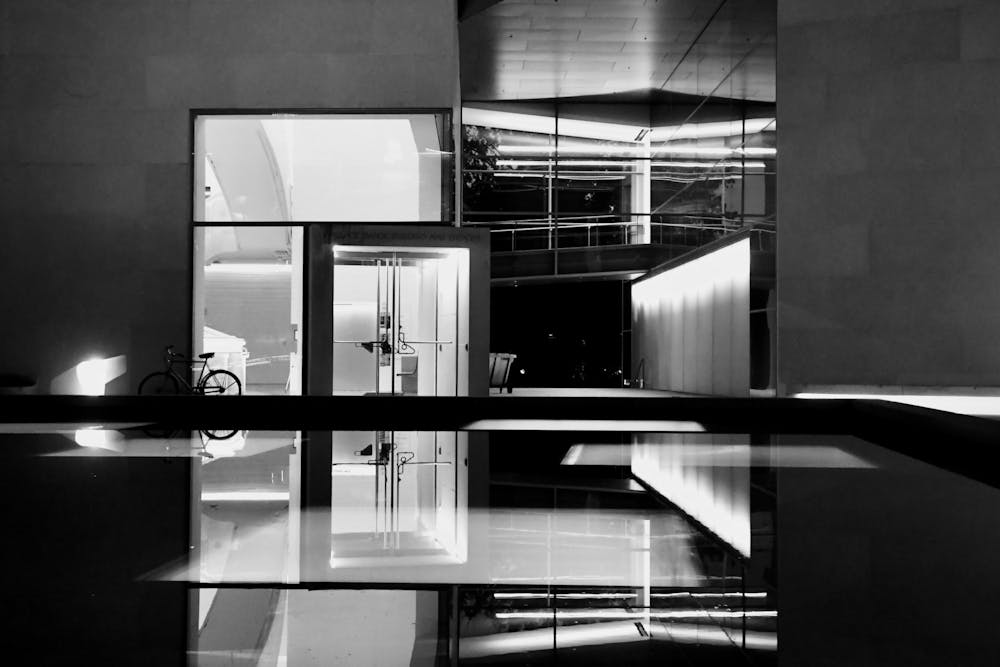Jianing Zhao ’20 had a busy spring ahead of her. She was directing two shows slated for production in the coming weeks: her original adaptation of the Chinese novel “Lust, Caution” with Princeton Chinese Theater and a participatory, site-specific production of Eugène Ionesco’s “The Chairs,” in collaboration with the French theater workshop L’Avant Scene. “The Chairs” was to be Zhao’s senior project with the Program in Theater.
But neither of her shows will ever see a live audience. The COVID-19 pandemic has all but shuttered the University, sent students scattering home across the globe, and thrown Princeton’s arts community into pandemonium.
Seniors studying theater and dance, as well as 23 students studying music, have faced the abrupt cancellation of projects meant to be the high points of their undergraduate work — and, for some, their forays into the professional artistic world. Student arts groups have reckoned with stalled performances, shrinking profits, and the consequences of social distancing on their artmaking.
“In general, I feel guilty talking about this,” said Zhao. “I feel guilty talking about the arts when the conversation should be about lives. I feel like if I talk to people about, ‘Oh, my shows are cancelled because of the virus,’ they’ll be like, ‘but people are dying,’ you know?”
An early curtain for University theater
Richard Peng ’20, Billie Anna Runions ’20, Calvin Rusley ’20, Hannah Chomiczewski ’20, and Kateryn McReynolds ’20 were preparing for the second weekend of performances of “A Little Night Music” with the Programs in Theater and Music Theater when the University announced that activities would move online through April 5.
Though athletic matches were still permitted to occur at one-third their venue’s capacity, the Lewis Center for the Arts (LCA) immediately cancelled the final two performances of Peng, Runions, Rusley, Chomiczewski, and McReynolds’s senior production. And while the LCA typically records a performance of all its shows for archival purposes, none of the first three performances of “A Little Night Music” were recorded.

The cast of “A Little Night Music.”
Photo courtesy of BT Hayes ’22
“We put so much work into this, and that’s an expectation we were led to believe that we could have,” said Runions. “A lot of people in the LCA, in the theater department, are looking to go forward into professional theater-making.”
The senior certificate students of “A Little Night Music” said they were left with a lack of closure and regretted that family members, several of whom had already purchased plane tickets, never got to see the show. Not all of their trips, however, went to waste. The parents of music director Maddie Wu ’21 used their time on campus to help Wu move out of her dorm.
Despite their frustrations, the seniors were grateful for the chance to have put on three shows, an opportunity of which their peers were deprived.
“This situation is very sad for many of our students, who have been working for more than a year on projects that will never have a live audience at Princeton,” wrote Director of the Program in Theater Jane Cox in an email to The Daily Princetonian.

Despite the cancellations, all seniors impacted will still receive certificates in their respective programs. In an email to seniors, Cox expressed her hope that the LCA can “host, on our public website, any portions, versions, re-invented creative projects that you might wish to make in these weeks at home or wherever you will find yourselves,” suggesting filmed videos of solo shows, readings with family and friends, plans for costume/set designs, or written documents, such as scripts of the many original student works scheduled for performance in the spring.
Senior certificate students in the performing arts are not the only ones who have lost important performances. Princeton Arts Fellow César Alvarez aimed to cap off their two years at the University by directing a production of their original musical “The Universe is a Small Hat.” Alvarez may be disappointed, but they try not to “hierarchize performance over process.”
“The fact that we didn’t get to do a performance is tragic, but it by no means deletes or erases the incredible work we got to do as a cast and as a group of creatives,” they said. “Concretely, we actually built the piece. We just didn’t install it.”

César Alvarez, a Princeton Arts Fellow, explains how the pendulum will swing over the stage in “The Universe is a Small Hat.”
Photo courtesy of Jon Sweeney / Lewis Center for the Arts
Alvarez and Grace Huegel ’22, one of the show’s performers, find the immersive and participatory musical relevant to current times. In the show, performers guide the audience through space, as they co-create a narrative of humans (played by the audience) facing a global crisis on Earth and a group of sentient AIs (played by the performers) attempting to escape humanity via a spaceship.
Alvarez believes that the pandemic only underscores “the deep interconnectedness between us and the nonhuman world” explored in their piece: “A virus like this is just absolutely reminding us of that, how deeply entwined we are with animals and the invisible quantum and microbiological world.”
Huegel recounted rehearsing for the show the week before spring break, when there was still a chance students would return after April 5. To follow social distancing protocols, the cast members were placed around the room as the stage manager measured six feet between each of them, hindering their ability to hear each other and perform as a community.
“It was interesting to notice the difference between feeling my own show crumble,” Alvarez said, “and then feeling every single person basically in the whole world that had a show, that going down, and the incredible solidarity that we in the theater community have expressed around the loss of our shows but also the need for this time of isolation.”
Across the globe and far beyond the Orange Bubble, performances have been cancelled and theaters have closed their doors. The Metropolitan Opera, Carnegie Hall, the New York Philharmonic, and Broadway theaters have all temporarily shut down. Countless smaller venues are facing grim financial outlooks.
Cox said she felt “blessed to be in a University setting,” where she can fulfill the LCA’s contracts with the artists it employs and need not worry much about the shutdown’s direct financial implications.
“We can easily make a clear decision without putting everyone’s livelihoods on the line,” Cox said.
Traditions broken, income gone: student groups adapt
“Usually, I think our main priority for running [Theatre] Intime is to make sure people are having very good and fulfilling and exciting artistic experiences,” said Eliana Cohen-Orth ’21, General Manager of Theatre Intime. “Right now, that isn’t the top priority.”
The University’s transition to a virtual-only presence has left student-run performing arts groups with difficult choices to make — frustrated at best, floundering at worst.
Theatre Intime, Princeton University Players (PUP), Princeton Opera Company (POCO), The Playwright’s Guild, and other theater groups must decide whether to fully cancel or postpone the productions affected by the University’s COVID-19 response.
Almost all of the non-student-written productions scheduled to perform on campus required student groups to purchase rights from a company. The student groups are now in the process of obtaining permission to postpone the shows or refunds from the companies.
“The postponement of some of our shows scheduled for this spring may influence how we build our 2020–21 season through the proposals process,” wrote Eliyana Abraham ’23, Vice President of PUP, in a statement to the ‘Prince.’
The proposals process — in which student theater groups solicit pitches from prospective directors and decide which shows to produce the following year — usually occurs in the spring. Theatre Intime, PUP, and POCO have all announced that their processes will continue as planned, with any in-person meetings or interviews conducted virtually.
All three groups hope to incorporate postponed productions into their coming seasons.
For The Playwright’s Guild, the future is less clear. According to President Juan José Lopez Haddad ’22, the group’s student-written sketch comedy show “Troupe” could be reused in the fall, as it’s written by the company’s team of writers. However, for fuller readings and performances of plays solicited from the campus community, The Playwright’s Guild has “a submissions process that renews every year,” typically after a summer workshop period.
“It is a question of the readings whether we can reuse them or not while respecting people’s desire to also have their work produced,” Haddad said. “We haven’t decided how fair that would be to other people who may want to submit their work.”
Haddad is an opinion columnist for the ‘Prince.’
The Princeton Triangle Club, while unable to present its annual show at Reunions due to the University’s decision to cancel the event, is still aiming to present part of its annual spring show (student-written sketches and songs) by producing “radio play” versions of the material.
While some theater groups may accomplish readings via Zoom or other platforms, Hannah Bein ’22, president of Glee Club and music director of the Tigerlilies, does not think that option is available to the singing groups she leads.
“Rehearsing music with 100 singers in the Glee Club is impossible to do virtually,” wrote Bein in a statement to the ‘Prince.’ “Many traditions that we hold dear in both [Glee Club and the Tigerlilies], such as performances and events honoring the seniors, were either rushed as we tried to complete them in the last hours before leaving campus, or cancelled.”

The cast of PUP’s production of “Urinetown” in rehearsal.
Photo courtesy of BT Hayes ’22
Many of the performing arts groups are experiencing the struggles Bein described: broken traditions, no senior send-offs, and suddenly-separated communities — not to mention significant financial losses.
Imani Mulrain ’23, the Assistant Artistic Director of the Black Arts Company (BAC): Dance, wrote in an email to the ‘Prince’ that the cancellation not only breaks “the BAC tradition of having a performance per semester” but also means “losing out on an opportunity to regain company funding/financials after having spent a considerable amount of money on a guest choreographer from LA this past [fall] semester.”
For AJ Kawczynski ’22, president of Princeton University Rock Ensemble, the cancellation of the Ensemble’s three-night show impacts its finances and recruitment.
“The ticket sales from this show are usually our main source of income,” Kawczynski wrote in an email to the ‘Prince.’ “Moving forward, right now we’re trying to strengthen our social media presence so that we can have an easier time recruiting new members in the fall without events that were helpful in the past like Princeton Preview.”
On March 9, it was announced that Preview, like Reunions, would be cancelled due to the pandemic.
Emily Cruz ’22, the undergraduate president of POCO, also expressed concerns about how the move off campus and online will affect her group’s finances and recruitment.
“POCO is in a major state of transition right now,” she said. “We’re really trying to recruit people and kind of change our presence on campus and come up with our season for next semester and proposals and reaching out to departments specifically to get funding.”
“Getting that funding is going to be a lot harder when everything is done through email and you just can’t have conversations about collaborations with people,” she added.
The Office for the Dean of Undergraduate Students (ODUS) is trying to mitigate some of the difficulties student groups face.
In an email to Performing Arts Council groups, Jessica Bailey ’19, the ODUS Arts Program Coordinator, wrote, “We will be working with everyone for the rest of the semester to try and provide as much assistance as possible.”
Beyond the potential financial losses, the lack of closure for senior group members, or the uncertainty of some groups’ futures, performing artists across campus have expressed pain over losing the pursuits that help define their identities and college experiences.
“I’m watching rehearsal videos and tearing up, missing everyone who supports me through everything,” wrote Abby de Riel ’22, Artistic Director of eXpressions, in an email to the ‘Prince.’
De Riel wasn’t the only student who spoke about the toll this sudden loss of community has taken.
“To all of a sudden lose all of that and all of the things that I’m passionate about, that make me happy, that give me joy outside of the academic stress of Princeton — that’s a lot,” said Kate Semmens ’22, Vice President of the Princeton Triangle Club and Business Manager of PUP.
Semmens was co-directing a production of the musical “Urinetown” with BT Hayes ’22, scheduled for this spring. Though Semmens is optimistic about “Urinetown” being rescheduled for the next academic year, she is concerned about the emotional burden of being separated from what she loves.
“As a student who came to Princeton wanting to have a balance between academics and art, and feeling like I really found that, and then to have all the arts part taken away, and then not even have the academics fully fulfilled,” she said, “it’s going to be very fascinating figuring out how to feel fulfilled and healthy mentally and healthy physically without having structured Princeton time to give to these things I’m passionate about.”
From Alvarez’s perspective, the performing arts exist “as a result of people coming together in a space,” which is why they have been so deeply affected by this crisis.
Yet, Alvarez also believes it is that emphasis on togetherness and physical intimacy that will make the performing arts “so important as a site for healing.”
“The trauma of being ripped apart from your community as a necessity for survival is so unique to this pandemic,” said Alvarez.
“I think theater just has, will, and always will be the space for us to be considering our togetherness and healing the wounds of separation.”





